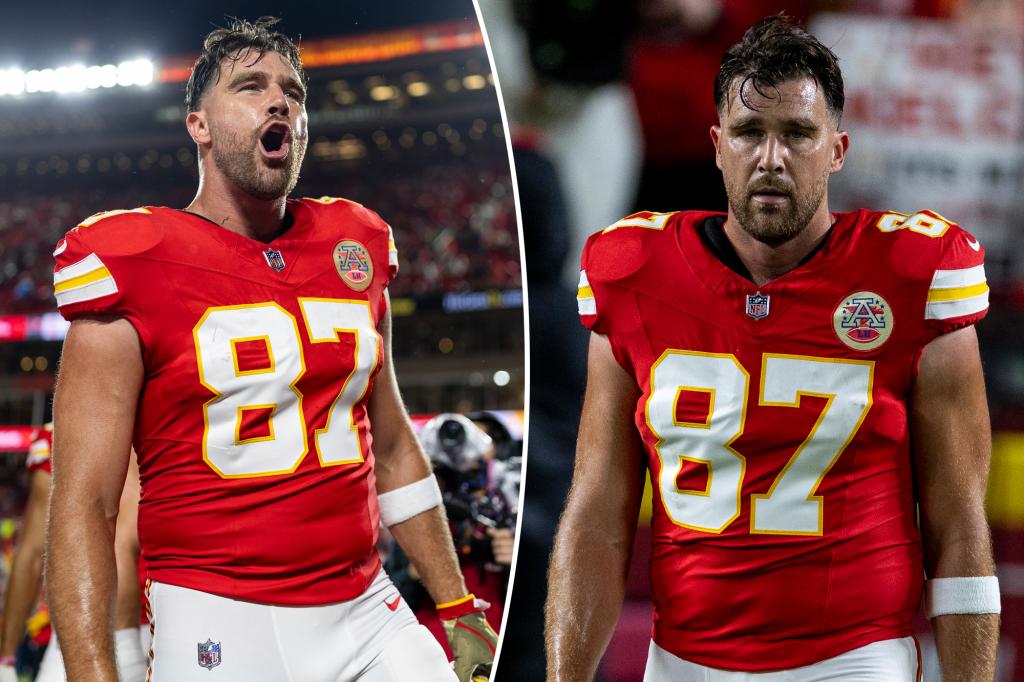Travis Kelce, the Kansas City Chiefs tight end, recently faced backlash on social media for remaining quiet about the 2024 presidential elections. Instead of reacting to the news that Donald Trump had been re-elected, Kelce posted several photos from a recent football game against the Tampa Bay Buccaneers, where the Chiefs emerged victorious with a score of 26-13. The celebratory post received criticism from some followers who felt that Kelce should have acknowledged the political news instead of boasting about his win.
Some of Kelce’s followers expressed disappointment in his decision to focus on football rather than political matters. Comments on his Instagram post included suggestions to reschedule the celebratory post for a different day, as well as pleas for him to read the room and be more sensitive to the current political climate. Despite the backlash, some fans came to Kelce’s defense, arguing that he should be allowed to celebrate his football win without being criticized for not addressing the election results. The debate highlighted the ongoing tensions between sports and politics on social media platforms.
Amidst the controversy, many supporters of Kelce emphasized the importance of separating sports from politics and allowing him to share his excitement over the football game. Some argued that there are already plenty of places on social media to discuss political issues, and Kelce’s Instagram page should be a space for him to engage with his fans in a sports-related context. Others questioned the expectations placed on Kelce to address political matters, pointing out that he is a football player whose primary focus is on his performance on the field.
Travis Kelce, who has never publicly discussed his political beliefs, faced scrutiny for choosing to remain silent on the election results while his girlfriend, Taylor Swift, has been vocal in her criticism of Trump and his policies. The divide among Kelce’s followers regarding his post reflects broader societal debates about the intersection of sports and politics, as well as the expectations placed on public figures to address political issues. Despite the backlash, Kelce’s decision to prioritize his football success over political commentary sparked a conversation about the role of social media in shaping public discourse. The incident serves as a reminder of the challenges faced by public figures in navigating the complexities of expressing themselves in an increasingly polarized digital landscape.


